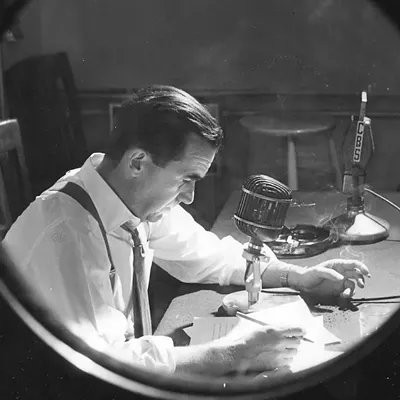On a summer afternoon in 1826, a great American life came to an end. Surrounded by friends and family at Monticello, Thomas Jefferson — the man who wrote the words we celebrate every Fourth of July — passed away.
That very same day, just a few hours later up in Quincy, Massachusetts, John Adams also breathed his last.
That day? Why, it was the Fourth of July — exactly 50 years after Independence Day 1776, when those two comrades put their signatures to the Declaration of Independence.
It's a striking coincidence of history made all the more compelling when you learn the relationship between the Virginian with the wandering intellect and the flinty New England lawyer. Together, Adams and Jefferson were the yin and yang of the new republic, with very different views on what the nation should become. Oh, and for more than a decade, they hated each other.
The election of 1800 was as bitter as ours in 2000, with President Adams losing to the upstart Republican Jefferson, who he was sure would scuttle the American experiment. As it happened, Jefferson's victory killed Adams' Federalist Party for good. Newspapers of the time amplified the contest's bitterness, to the point where Adams' wife, Abigail, accused Jefferson of "back-wounding calumny" in a terse letter. Then something remarkable happened. Retired from public life, the former presidents became friends again.
In a profound and moving correspondence that ran for 14 years and 158 letters, they talked about all kinds of things: freedom, exercise habits, the nature of the Divine, their grandkids. It reminds you just how learned and wise our Founders were. The man who wrote the Declaration of Independence still could turn a wicked phrase, wondering in one rambling 1812 letter to Adams, "Whither is senile garrulity leading me?" (I'm sure readers of this column have often wondered that, too.)
Adams shared his worries about the future of the fledgling nation, seeking guidance from the Roman historian Sallust: Concordia res parvae crescent; discordia maximae dilabuntur. (Yes, they would correspond in Latin when necessary.) Translation: "Small communities grow great through harmony; great ones fall to pieces through discord."
The lesson of history? In the end, "American" trumped party affiliation, as it should. Or as Jefferson so eloquently put their fruitful, lifelong relationship in another letter: "Laboring always at the same oar, with some wave ever ahead threatening to overwhelm us and yet passing harmless under our bark, we knew not how, we rode through the storm with heart and hand, and made a happy port." ♦
























